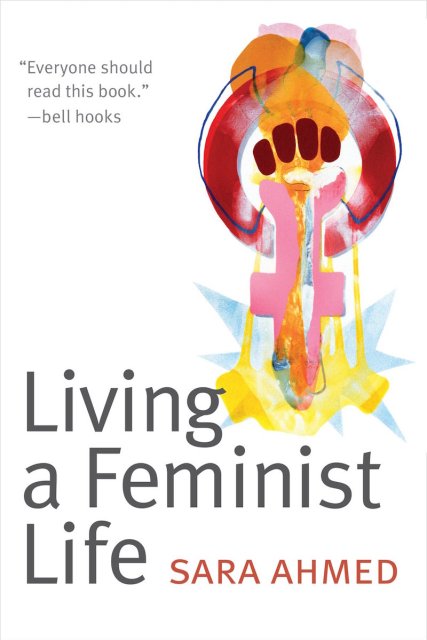
Hi and welcome to this week’s Lez Liberty Lit!
Things About Queer Books (And Other Books Relevant To Your Interests)
“It’s Dissociating Season” is a poem by Precious Okoyomon that you will like.
Colson Whitehead won the 2017 Pulitzer Prize for fiction.
Read these 18 new cookbooks. Read these most challenged books of last year. Read these YA books on the Asian immigrant experience. Read this list of work on racism and the environment. Read these debut masterpieces. Read these recommendations from Skylight Books. Read these books when things go nuclear.
In an interview at LitHub, Sara Ahmed discusses Living a Feminist Life, feminist shelters, challenging power and more.
“When I think of feminism I am always questioning whether enough women of color are involved in the conversation. And when I think about being a womanist I worry queer and trans voices are underrepresented. In the Crunk Feminist Collective universe both juxtapositions are situated on the road to understanding each other,” writes Aries Hines in a review of The Crunk Feminist Collective, edited by Brittney C. Cooper, Susana M. Morris and Robin M. Boylorn, at Lambda Literary.
Support your local libraries. Also, visit them. The little free ones, too.
Remember card catalogues?
“Think of Bingo Love as Black Mirror’s ‘San Junipero’ episode meets Moonlight. Bingo Love is a Queer Black romance novella – two beautiful young Black girls meet at a bingo hall, eventually fall in love with each other, but unfortunately being set in 1963 poses all types of problems,” says Tee Franklin, a queer disabled comics creator behind Bingo Love, in an interview at BGD.
Joan Didion writes a lot about clothes.
“Object-oriented feminism is a queer thing.”

At the New Yorker, Jia Tolentino writes about women’s ambition as a marketed mandate, an imperfect drive, often infantilized, and often dismaying.
“Helene Cooper’s Madame President is a guide to getting a female head of state — though it wasn’t intended to be,” writes Chris Fink at the Los Angeles Review of Books.
At the New Yorker, Moira Donegan writes about Rebecca Solnit, feminism and the good of feminist storytelling:
“The tradition of the feminist anecdote encourages women to make their voices heard, but it is easy to see this long history of tweeting, consciousness-raising, and speaking out not as a victory but as a defeat. Reading “The Mother of All Questions,” I found that Solnit’s faith in feminist storytelling, in the notion that amplifying women’s voices might truly have the power to transform the world, sometimes exceeded my own. It seems, instead, that there have been centuries of women raising their voices only to find that patriarchy is enduring and indifferent. After all, having the power to speak is not the same as a guarantee that you’ll be listened to.”








Comments
Thanks for reminding me I need more Sara Ahmed in my to-read stack. I have never felt quite as gay as when I was reading her Queer Phenomenology.
(tbh though that might have a lot to do with the fact I was cramming for quals while also making out with a girl)
“Everything i like is 99% wrong
Everything i am is 99% wrong”
Yeah. Wow. That whole poem hit me pretty hard.